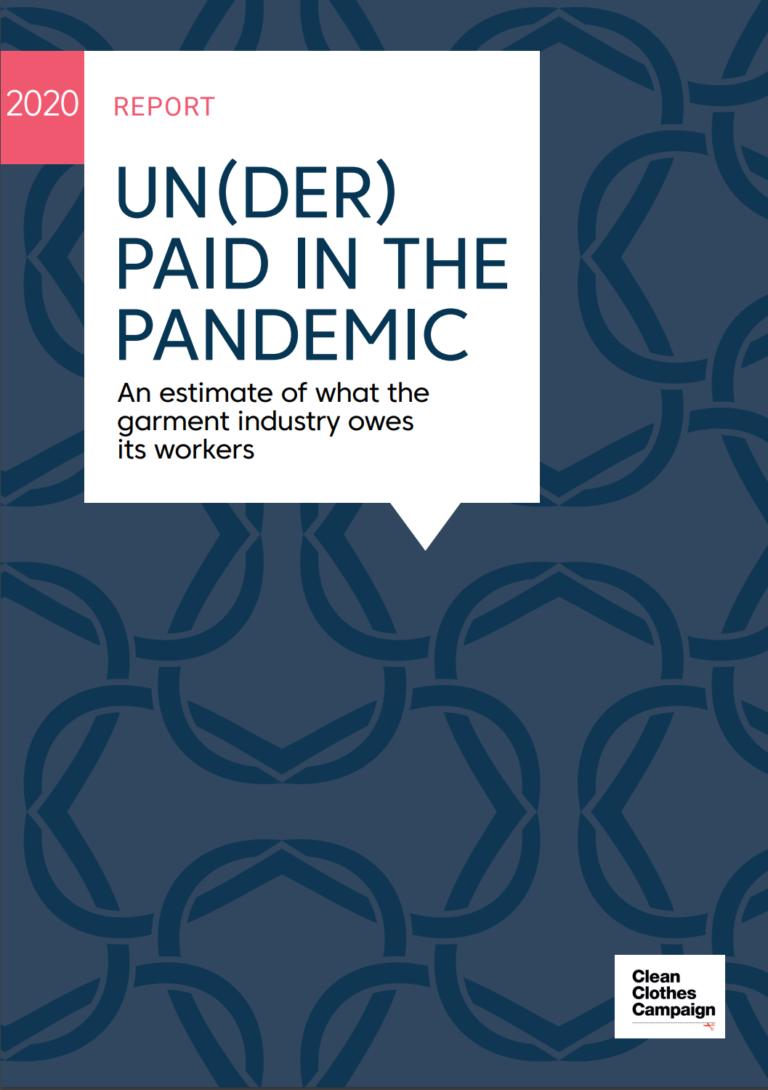First, in January, when the transportation of raw materials from China to other garment producing countries was suspended, many factories were forced to close temporarily. The next wave hit as the pandemic spread to Europe and the United States (US). In response to a sudden drop in consumer demand for apparel, brands cancelled and refused to pay for shipments of completed and in production orders. As a result, factories were forced to close and dismiss workers in mass. Each time factories were forced to close, workers were often sent home without notice or pay from their employers. For example, in Bangladesh, 72.4% of furloughed and 80.4% of dismissed workers were sent home unpaid in March 2020. The third wave of devastation continues, as the virus itself spreads in garment producing countries. At the time of writing this report, many factories remain closed and millions of workers remain unpaid.

